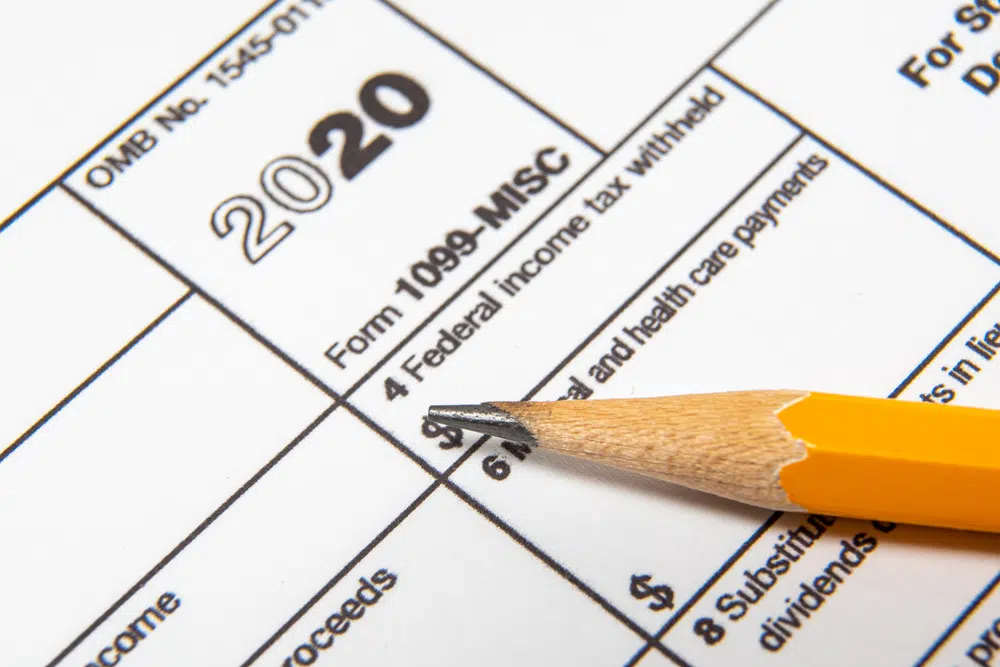Many People to Learn of Unemployment Benefits Fraud During 2021 Tax Filing Season
Home Help Center Many People to Learn of Unemployment Benefits Fraud During 2021 Tax Filing Season

- One of the first changes in 2020 due to COVID-19 was the delay in the regular income tax filing date. Soon after that, millions of out-of-work Americans began to receive enhanced unemployment benefits and special small business loans.
- Soon after that, cybercriminals began to steal those benefits. The Department of Labor estimates that unemployment fraud could total as much as $26 billion. California alone has seen nearly $2 billion in unemployment benefits fraud.
- With the 2021 tax filing season quickly approaching, many people will receive a 1099 form alerting them that they must claim income they never received from the benefits they never sought.
- To learn more, listen to this week’s episode of the Fraudian Slip.
- People can learn about taking advantage of the Internal Revenue Service (IRS) identity protection programs or reporting identity-related issues to the IRS at IRS.gov and clicking on the Identity Theft Protection link at the bottom of the home page.
- If anyone believes they are a victim of tax identity theft or unemployment benefits fraud, they should contact the Identity Theft Resource Center toll-free at 888.400.5530 or live-chat on the company website idtheftcenter.org.
The below is a transcript of our podcast episode with special guest, IRS
Welcome to the Fraudian Slip, the Identity Theft Resource Center’s (ITRC) podcast, where we talk about all-things identity compromise, crime and fraud, including the impact identity issues have on people and businesses.
In a typical episode, we would focus on something that has happened or is happening that impacts consumers and businesses. Not today. We are going to talk about what’s about to happen, specifically the 2021 tax filing season.
It’s been nearly a year since the COVID-19 pandemic disrupted virtually every aspect of everyday life. One of the first changes in 2020 was the delay in the traditional income tax filing date. Soon thereafter, millions of out-of-work Americans began to receive enhanced unemployment benefits and special small business loans. Shortly after that, cybercriminals began to steal those benefits. The Department of Labor estimates that unemployment fraud could total as much as $26 billion. California alone has seen nearly $2 billion in unemployment fraud.
Fast forward to today, and the spike in benefits fraud is subsiding. However, a second round of victims may soon emerge. Benefits like unemployment payments are considered income and are taxable. Thousands of the unemployment payments made in 2020 were made in the names of people whose identities were misused – and they didn’t know it. With the 2021 tax filing season quickly approaching, many people will receive a 1099 form alerting them that they must claim income they never received from the benefits they never sought. That is on top of the usual identity-related income tax fraud the IRS sees each year.
We talked with Jim Robnett, the Deputy Chief of the IRS – Criminal Investigation Division, about the following:
Overview
- Before 2020, the number of false income tax returns linked to identity compromises was already falling. What had the IRS done that was working so well to reduce tax-related identity theft?
Pandemic-Related Tax Issues
- The most obvious change in terms of taxes in 2020 was moving the filing date. From the IRS perspective, what was 2020 like for you?
- Anytime there is a mass injection of money into the economy, there is fraud. The IRS played a crucial role in delivering the stimulus checks approved by Congress. What kind of response did you expect from criminals, and what did you see?
- We know there has been a massive amount of unemployment fraud, and that has had tax implications for victims. Explain why that is and what taxpayers should do if they suspect or know they are the victim of benefit fraud?
- What should taxpayers do who get a 1099 form they were not expecting?
- What about small businesses or entrepreneurs who may discover someone took out an SBA loan or other pandemic benefit in their name?
2021 Tax Issues
- What should taxpayers do to prepare for 2021?
- The IRS recently announced the expansion of Identity Protection PINs. That’s going to be a great tool for preventing fraud. Explain how that works and what taxpayers need to do to take advantage of the IP PIN program?
For answers to all of these questions, listen to this week’s episode of The Fraudian Slip Podcast.
Learn More From the IRS
You can learn more about taking advantage of the IRS identity protection programs or reporting identity-related issues to the IRS at IRS.gov and clicking on the Identity Theft Protection link at the bottom of the home page.
Contact the ITRC
You can learn how to protect yourself from identity fraud, crimes and compromises – including the tax-related issues we discussed today, by visiting idtheftcenter.org, where you can also read more about the latest data breach trends.
If you think you are the victim of an identity crime or your identity has been compromised, you can call us, chat live online, send an email or leave a voice mail for an expert advisor to get advice on how to respond. Just visit the website to get started.
How much information are you putting out there? It’s probably too much. To help you stop sharing Too Much Information, sign up for the In the Loop.
Get ID Theft News
Stay informed with alerts, newsletters, and notifications from the Identity Theft Resource Center

